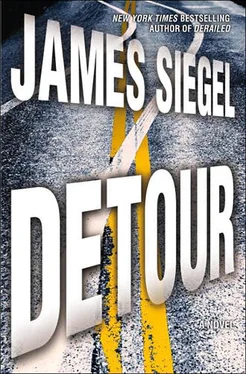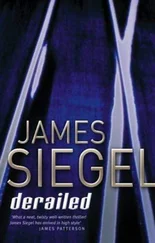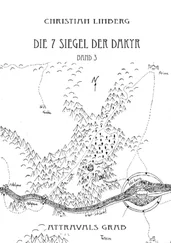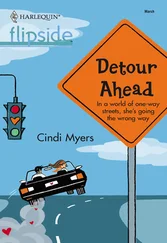It has no beginning and no end, forever.
FOUR
On the way back from Santa Regina, they passed a field of human heads.
Maybe they should’ve taken that as a sign, an omen signaling what was to come. But that’s the problem with omens—they only become omens based on later events.
There was Joanna pressing a very sleepy Joelle to her chest.
There was Paul mentally traversing the newly discovered terrain of fatherhood.
There were twenty heads sticking up out of the ground.
Heads that were clearly and emphatically, well, alive. They were blinking their eyes, opening their mouths, slowly looking up and down, left and right.
“Hambre,” Pablo said, sighing.
“What?” Paul said. Hambre meant what? Hunger.
Joanna had seen them too. She’d instinctively brought Joelle closer to her chest as if to protect her, her maternal instinct suddenly pressed into action.
Pablo said, “They are protesta .”
Hunger strike.
They’d buried themselves up to their necks in a section of unpaved road. Twenty or thirty of them, mostly young men and women. They looked like something out of Hieronymus Bosch, Paul thought, doomed penitents trapped in the third circle of hell.
“What are they protesting?” Joanna asked.
Pablo shrugged. “Conditions,” he said.
“How long have they—?”
“Long time,” Pablo said. “Four, five weeks.”
Maybe not much longer.
The first thing Paul heard was the siren.
An ambulance, he guessed—because he saw a station wagon with Ambulancia painted on its side suddenly pulling up onto the sidewalk. Its roof light was conspicuously inert. No, the siren was coming from somewhere else.
Two police cars. Urbano guardia. One of them cutting right in front of them, causing Pablo to jam the brakes and veer suddenly to the left, where their car came to rest with its front bumper virtually touching a brick wall.
Joelle began crying.
She wasn’t the only one.
The policemen used long black nightsticks.
It looked like that bar game where little plastic groundhogs pop their heads up in random order and you score points by bopping them on the head. Only in the bar game they can pop back down. They can lie low and hide.
Not here.
In mere minutes, minutes in which Joelle grew increasingly agitated and Pablo attempted to turn the car around, the ground turned scarlet.
Which is why the ambulance was there—the result of good civic planning.
Pablo finally managed to get the car in the opposite direction and take off down a ridiculously narrow side street, barely avoiding sudden streams of people running from all directions to watch.
The field of bloodied heads receded into the distance. It was harder for Paul to get the sight out of his head.
Joanna was shaking—or was that him? When he put his arm around her and hugged, it was hard to tell. He’d been here a day, he thought, less than a day, but he was increasingly convinced that Bogotá wasn’t third world as much as fourth dimension.
Locombia, he’d overheard someone on the plane refer to Colombia: the mad country.
He had a pretty good idea now what they were talking about.
He was ecstatic that they were taking Joelle from here. They might’ve come to Colombia to rescue themselves—from loneliness, the doldrums, a life without kids—but they were rescuing her too. From this . Joelle would grow up in a place of relative safety and calm. Where she’d never see people buried up to their necks in a city street, and even if she did, policemen wouldn’t be bludgeoning them half to death.
Pablo asked if they were all right.
“Yes,” Paul answered, aware that Pablo seemed remarkably undisturbed by the incident. Maybe when you lived in Colombia, it was just another day at the office.
When they entered the hotel elevator, Paul smiled at the middle-aged Colombian couple who walked in seconds later, expecting the smile back that seemed to be the right of new parents everywhere. No dice. He was greeted with cool and unmistakable hostility.
For a moment he wondered if it was simply their nationality. Weren’t Americans targets of everyone’s anger these days? But the man whispered something to his wife in Spanish, and among the Spanish words was a word Paul recalled from his high school foreign-language labors. Niña.
It wasn’t because of who they were. It was what they were doing. Adopting a baby.
A Colombian baby.
They were just two more Americans doing what Americans had always done in countries not their own. Depriving it of its natural resources. First gold and oil and coal and gas. Now babies. Paul hadn’t considered that point of view before. Now that he found himself in an uncomfortably frigid elevator, he did. It made him feel a little less like a rescuer and more like a pillager.
Luckily, their floor came first. He ushered Joanna out of the elevator and down the hall.
“Did you see that?” he asked Joanna.
“What?”
“Those people. In the elevator.” He slipped his key into the lock and opened the door.
“Talk low,” Joanna said. “Joelle’s sleeping.”
“That couple,” Paul whispered. “They looked like they wanted to have us deported. Or shot.”
“What?”
Maybe Joanna had been trying to forget what she’d just seen on that street. She hadn’t noticed.
“They hated us, Joanna.”
“You can’t be serious. They don’t even know us.” Joanna slowly settled into an armchair, where she looked close to collapse.
“They don’t have to know us. They don’t approve of us. We’re taking their children from them.”
“ Their children? What are you talking about?”
“Their country’s children. Colombia’s children. I’m telling you, they looked like I should be handing her back.”
“It doesn’t matter. That’s them. Everyone else has been perfectly nice to us.”
“Everyone else is taking our money. That might color things a little.”
Joanna wasn’t listening anymore.
She was staring down at her child, busy doing what mothers do, he supposed—basking in that part of the unbroken circle where even fathers don’t dare to tread.
FIVE
This is how they met Galina.
They’d fallen into a half-stupor by the armchair and awakened to a shrill, deafening alarm that turned out to be their daughter. They immediately knew they were in trouble.
They’d forgotten to sterilize the bottles they’d brought with them from New York.
They’d forgotten to sterilize the nipples.
All the things the nurse at Fana had gone over with them ad nauseam.
There was a kitchenette just off the sitting room. Paul threw a pot of water on the stove, then began frantically looking for something to open up the cans of baby formula. Joelle’s screams reached heretofore unknown decibel levels.
Paul dropped two bottles and nipples into barely boiling water, but there wasn’t a can opener to be found. Both kitchen drawers were starkly empty.
Joanna rocked Joelle while walking back and forth from the kitchenette to the bed, which only seemed to cause Joelle to scream louder, if that were humanly possible. Joanna, fearless, indomitable, a four-year subscriber to Mother & Baby magazine, looked scared out of her mind.
There was a knock on the door.
Paul began rehearsing his apologies on the way to open it. New baby, hungry, sorry for any —
It was Pablo. And a woman.
“Galina,” he said, evidently the woman’s name. “She’s your nurse.”
Читать дальше












